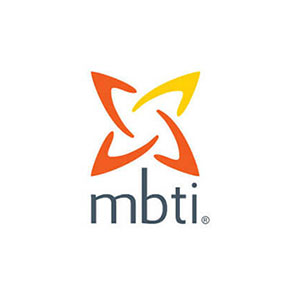The MBTI is one of the world’s most popular personality tools and has become the go-to framework for people development globally. With more than 70 years of research-based insight, the MBTI assessment is a robust tool for self-awareness and improvement. It provides positive language for understanding and valuing individual differences. With practical insight that’s easy to understand and implement, the MBTI assessment has helped thousands of organizations and millions of people around the world improve how they communicate, learn, and work. The tool can be used in a myriad of different contexts for the purposes of self-awareness. The MBTI offers different Steps/Forms to provide varying levels of depth into personality preferences or type.
The MBTI Step I/Form M provides the foundation of type. Its primary goal is to help individuals identify their four-letter MBTI personality type (e.g., ISTJ, ENFP). This involves understanding their preferences across the four dichotomies:
Extraversion (E) or Introversion (I): How you get and direct your energy.
Sensing (S) or Intuition (N): How you take in information.
Thinking (T) or Feeling (F): How you make decisions.
Judging (J) or Perceiving (P): How you prefer to live your outer life.
The Step I reports provide a clear understanding of your "whole type" and how it differs from other types.
The MBTI Step II/Form Q builds on Step I, offering a more in-depth and individualised look at your personality type. Its goal is to explore the nuances within your four-letter type, revealing how you express your preferences in unique ways. For each of the four Step I preference pairs, Step II introduces five "facets" (components). This means it delves into 20 additional facet-level scales. For example, within Extraversion-Introversion, facets might include "Initiating-Receiving" or "Expressive-Contained." The Step II reports provide a highly personalised profile that helps to explain why two people with the same four-letter type might still behave or feel quite differently.
AREAS OF APPLICATION
The MBTI is ideal for a wide range of applications, including:
Team development
Leadership development
Conflict management
Stress management
Career transition and planning
Understanding decision-making style
REPORT OPTIONS
Step I (Form M) provides the following software reports:
Profile Report: Provides a basic profile of a client’s 4-letter MBTI type.
Interpretive Report: Delivers a concise yet thorough interpretation of a client’s MBTI results.
Interpretive Report for Organisations: Employee strengths and target areas for development are identified in this report.
Comparison Report - Work Styles: Compares two individuals’ types and helps them to learn to work together effectively.
Team Report: Provides information on the team type and individuals within the team.
Career Report: Provides easy-to-read graphical information that helps find the best occupational match for a client or student.
The Communication Style Report: Provides general descriptions about how individuals with certain preferences tend to prefer to communicate.
Decision-making Style Report: Helps a client learn about how personality preferences influence decision-making.
Conflict Style Report: Describes how the person is likely to approach and deal with conflict situations.
Stress Management Report: Describes how likely the person is to experience and react to stress. It also suggests ways to help manage stress successfully.
Personal Impact Report: Supports a comprehensive development experience by applying MBTI type knowledge to eight key development areas.
Report for Healthcare Professionals: Helps doctors, nurses, healthcare assistants, and clinical staff to improve all aspects of their communication. It helps you to become aware of how your individual personality type preferences impact on the style of care you give.
Step II (Form Q) provides the following reports:
Profile Report: Explores the facets of a client’s MBTI type.
Interpretive Report: Helps clients to see how their facet results show how they express their type preferences.
Other combined reports include:
Strong and MBTI Career Report: Provides information that gives clients a complete career development picture.
The Leadership Report using FIRO-B and MBTI: This combined report helps clients learn more about their leadership style.
Product Info
Training
Required — Get training
Age range
Individuals 14 years and older
Administration time
15 – 30 minutes (Form dependent)
Norms
N/A
Languages
English, Afrikaans (+21 languages)
Administration Platform
OneJVR/Self-scoring
Integrated reports
Available
Author
Isabel Briggs Myers and Katharine Briggs
Publisher
The Myers-Briggs Company
Useful links
Questions about Myers-Briggs Type Indicator® (MBTI®)?
Ask an expert
Fill in the form and one of our product experts will be in touch with you.


